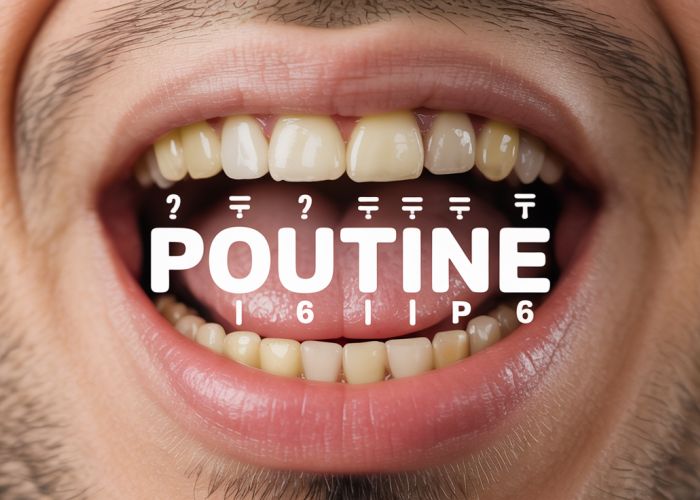Ever wanted to order poutine like a true Québécois, but stumbled over the words? Mastering the pronunciation of poutine is easier than you think! This guide, brought to you with a little help from insights gleaned from linguistics experts at Université Laval, will have you ordering like a local in no time. With attention to detail and an ear for the subtle nuances of Canadian French, even using a simple online pronunciation tool, you will become fluent in the art of speaking ‘poutine’ quickly.

Mastering the Pronunciation of Poutine: A Quick Guide
Let’s break down how to pronounce "poutine" like a true Quebecois native! We’ll cover the essential sounds and mouth movements, and by the end of this guide, you’ll be ordering your favorite cheesy fries with confidence.
Why Pronunciation Matters
- Respect for Culture: Getting the pronunciation right shows respect for Quebec’s culture and culinary heritage.
- Clear Communication: You’re less likely to be misunderstood when ordering poutine.
- Authenticity: Impress your friends and feel more connected to the dish’s origin.
Deconstructing "Poutine" Sound by Sound
The word "poutine" is surprisingly easy to pronounce once you understand the individual sounds that comprise it. It consists of two syllables: "pou" and "tine."
The "Pou" Syllable
This is where most people stumble. It’s not pronounced like the English word "poo."
- The Correct Sound: Think of it as a short "oo" sound, similar to the "oo" in "foot" or "book." Your lips should be rounded, but not overly puckered.
- Avoid the English "Poo": This elongated "oo" sound completely alters the pronunciation.
- Practice: Say the word "foot" several times, then try to isolate the "oo" sound and apply it to the beginning of "poutine."
The "Tine" Syllable
This syllable is more straightforward but requires attention to detail.
- The "T" Sound: The "t" is pronounced as a typical "t" sound, crisp and clear.
- The "Ine" Sound: This sounds like "een," similar to the "een" in "machine" or "routine." It’s NOT like the "ine" in "fine" or "wine." The "i" takes on a long "e" sound.
- Putting it Together: Say "teen" slowly. Now, simply replace the "teen" with "tine" using the "een" sound we just practiced.
Common Mistakes to Avoid
| Mistake | Why it’s incorrect | How to correct it |
|---|---|---|
| Pronouncing "Pou" as "Poo" | Changes the vowel sound completely. | Use the "oo" sound from "foot" or "book" instead. |
| Stressing the wrong syllable | Makes the word sound unnatural. | Emphasize the second syllable, "tine." |
| Using the "ine" like "fine" | Alters the "i" vowel sound incorrectly. | Use the "een" sound similar to "machine." |
Practice Makes Perfect: Drills and Exercises
Let’s put all of this together with some practical exercises.
- Slow Repetition: Say "pou-tine" slowly, focusing on each syllable individually.
- Gradual Speed Increase: Gradually increase your speed as you become more comfortable.
- Listen and Repeat: Find audio recordings of native Quebecois speakers saying "poutine" and mimic their pronunciation. There are plenty of examples on YouTube or other language learning platforms.
- Record Yourself: Use a voice recorder on your phone to record yourself saying "poutine" and compare it to the audio recordings you found.
- Order with Confidence! The best practice is to actually order poutine and use your new pronunciation skills.
Additional Tips for Authentic Pronunciation
- Listen to Quebecois French: Familiarizing yourself with the general sound of Quebecois French can help you fine-tune your pronunciation.
- Context Matters: While this guide focuses on the core pronunciation, keep in mind that regional accents can slightly alter the sound.
- Don’t Be Afraid to Ask: If you’re unsure, politely ask a native speaker to correct your pronunciation. They’ll appreciate your effort to learn.
Poutine Pronunciation: Frequently Asked Questions
Want to master the pronunciation of poutine? These FAQs will help you sound like a true Québecois.
What’s the most common mistake people make when pronouncing "poutine"?
The biggest error is pronouncing the "ou" like it sounds in "you." In French, "ou" is pronounced like the "oo" in "food." Focusing on that simple vowel sound will significantly improve your pronunciation of poutine.
Is the "t" in "poutine" always silent?
Yes, the "t" is typically silent in the French pronunciation of poutine. You generally won’t hear it pronounced unless someone is deliberately trying to over-enunciate it for clarity.
How important is it to get the pronunciation of "poutine" exactly right?
While Canadians generally appreciate the effort when someone tries to pronounce "poutine" correctly, it’s more about conveying respect for the dish’s origins. Don’t stress too much about perfection; focus on the key sounds.
Are there any regional variations in the pronunciation of poutine?
While subtle variations may exist, the standard French pronunciation – "poo-teen" (with a silent "t") – is widely understood and accepted throughout Canada. Sticking to this pronunciation of poutine will serve you well.
Alright, you’ve got the basics of the pronunciation of poutine down! Go ahead, impress your friends and order with confidence. Enjoy that delicious poutine, you earned it!